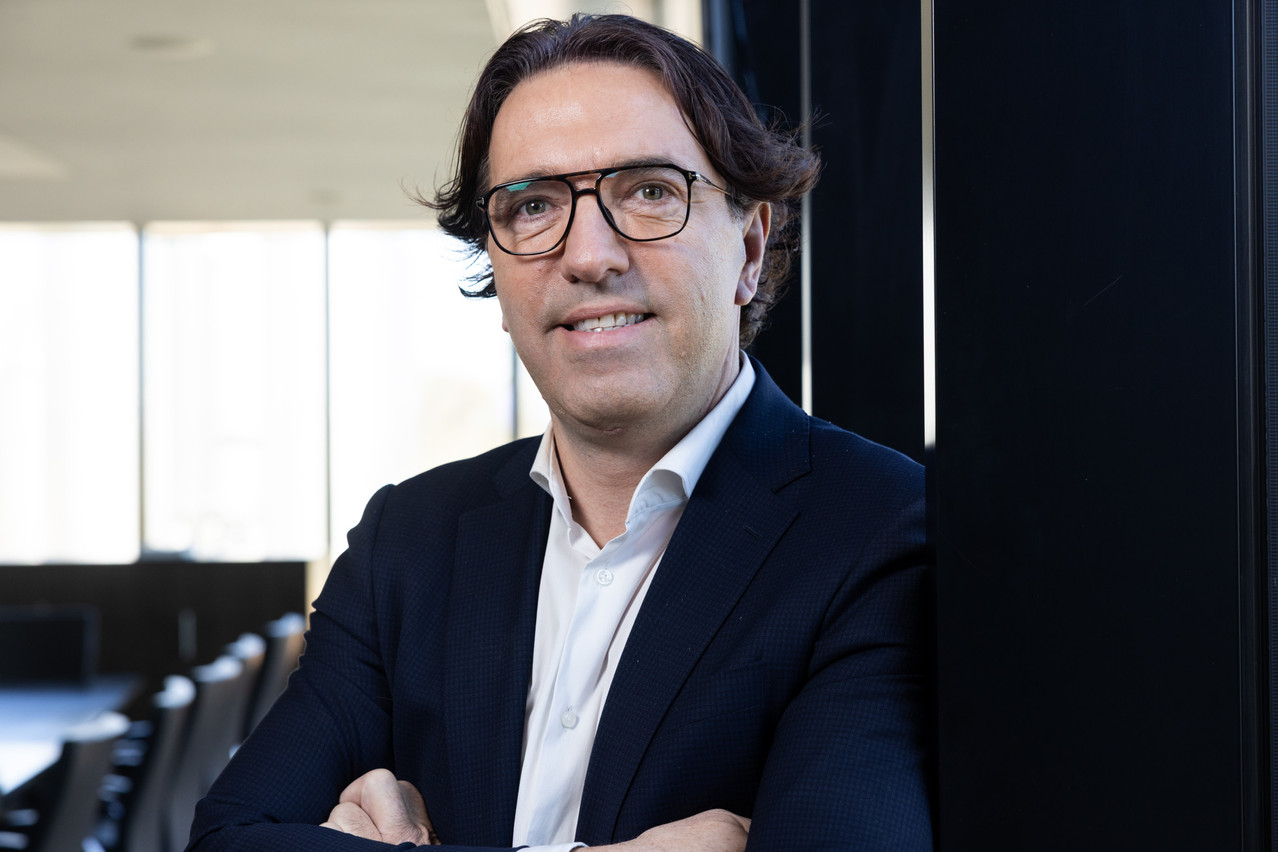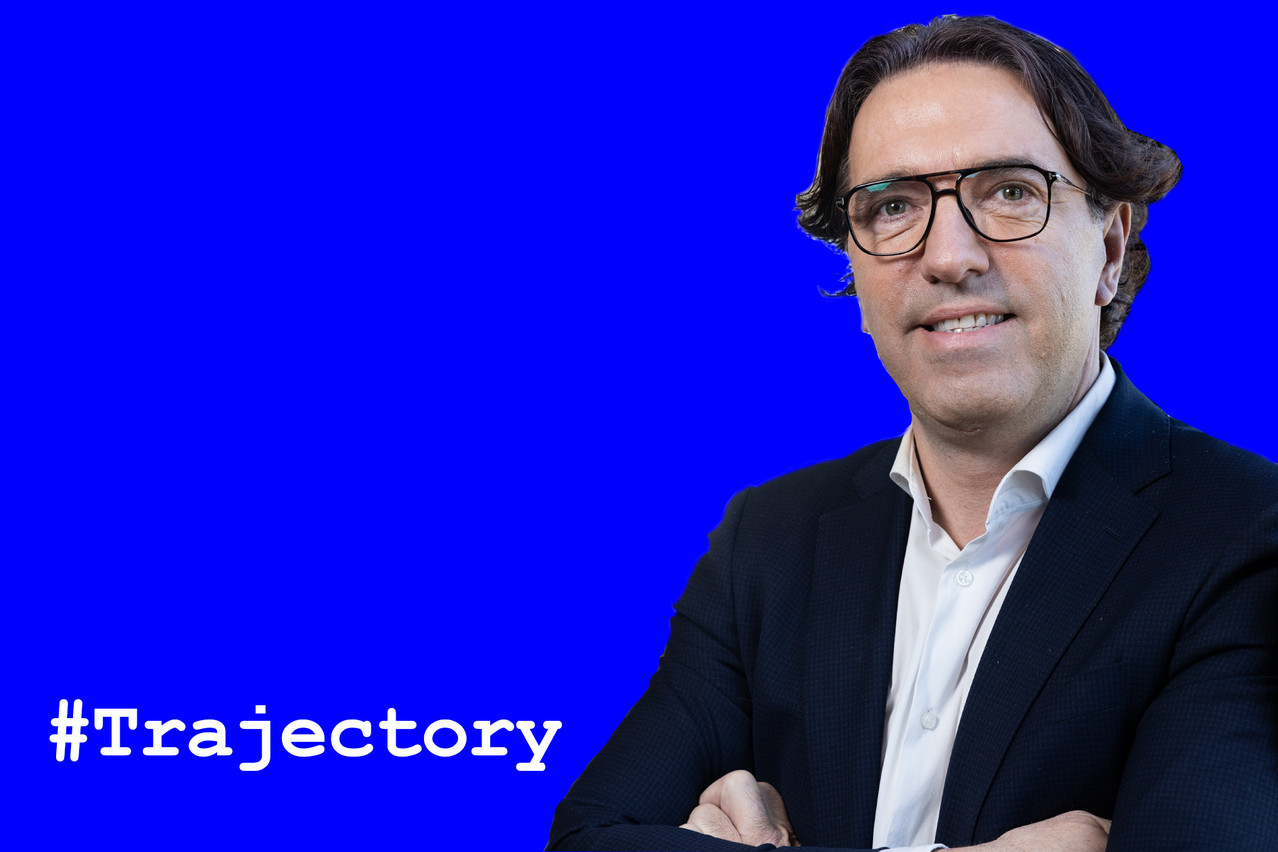Less than a year after graduating top of his class from engineering school, joined Luxlait as a project and technical director. That was in 1996. On his plate: the construction file for the Bissen plant, the current flagship of a 130-year-old group.
Fast forward to today: the group has 400 employees, two production sites and a turnover of €160m. And Gérard is the CEO.
The early days of Gérard’s career may have been tough, but he learned a lot and got some doors to open. He tells us how he went from a young, know-it-all engineer to a CEO devoted to realising--and continuing to develop--his vision.
Paperjam: Tell us about your early days of working.
Gilles Gérard: It started when I was about 16, with my father, who was a journalist with Le Républicain Lorrain. I used to help him write articles and collect sports results. This enabled me to pay for part of my studies and some outings. As a student engineer, I went on to do a number of work placements in large companies. These experiences helped me to understand how the world of work works and how industry works. It also helped me to develop a passion for the food industry, which is where I work today. It opened my eyes to the challenges and opportunities of the sector.
Why didn’t you pursue journalism?
I did a scientific baccalaureate and I’m more interested in numbers. My father didn’t push me into journalism either, I have to say.
Have you ever wanted to drop everything and change your career path completely?
Yes, but it hasn’t happened very often. Just once, in fact. I had a real moment of doubt when I was in charge of developing the factory where we are now. I had a huge amount of work and enormous pressure. The pressure came from everywhere. I thought about doing something else. But then I changed my mind, because of my passion for the food industry and my commitment to Luxlait. All in all, this sequence enabled me to develop perseverance and get back on track. I came out of it stronger. It was a blessing in disguise.
If there had been something else, what would it have been?
I would probably have gone back to school. If I had my career to do over again, I’d like to be a corporate lawyer.
At the start of my career, I tended to want to control everything, to do everything myself. This led to a form of mental exhaustion.
What beginner’s mistake would you have preferred to avoid?
At engineering school, where I graduated top of my class, we were told that we were the best, that we were going to join a company and that we were going to be in charge. When I left, I had a bit of a big head. When I arrived at Luxlait, I was very arrogant. This got me into trouble with both my colleagues and my superiors. At the start of my career, I tended to want to control everything, to do everything myself. This led to a form of mental exhaustion.
How did you overcome that arrogance?
Thanks to a meeting with the production manager at the time, Mr Reslinger. He explained that there were a lot of things to learn, that a career was long, that you had to show humility and that I therefore had things to change. That was a slap in the face. I cried that night when I got home. But after that, I changed completely. I was lucky that this person trusted me. It’s important in business to have one or more people there to support and guide you. Mentors.
More generally, what do you rely on to get through hard times and setbacks?
I’m very resilient. I also have the ability to adapt to situations. I don’t keep things to myself; transparent communication helps resolve a lot of conflicts. And I have a development mindset. That’s helped me get out of a lot of difficulties. The most important thing is to trust yourself and believe in yourself. If you’re afraid, you’re more likely to end up in a negative spiral. I was brought up to see difficulties as possible opportunities. In my head, I say to myself: “OK, it’s scary, but it’s going to shape me.”

“If I were to write a book, its title would be The Art of Persevering . The determination to always want to learn is a leitmotif in my life,” says Gilles Gérard. Photo: Eva Krins/Maison Modern
A concrete example of a difficult moment that became an opportunity?
As an opportunity, I don’t know, but I come back to the construction of the new plant. It changed me completely. There was a Gilles Gérard at the entrance but another one at the exit, two totally different people. In the end, it was a success for me and for the whole group. It enabled me to join the management committee. As an engineer, I discovered everything there that I didn’t know: strategy, finance, marketing, etc. I’m someone who has a great sense of humour. I’m someone with a huge appetite for learning, and that’s all I’ve done my whole career. So joining this committee gave me the opportunity to learn and get to the position I have today.
Have you ever said to yourself: “This is it! I’ve made it!”?
No, I’m not someone who is satisfied with success. I’m always asking myself how I can do better.
What’s the best advice you’ve ever been given?
To respect others, that’s for sure. And to listen, too. I had an annoying tendency not to listen too much to people. It took time, several years, but I learned and evolved on that point too. Today, I know that I like working on a team and I like listening to people. You grow by listening to others. I often say: “Alone you go fast, together you go far.”
I do a lot of thinking. My nature is to take a lot of time. I rarely make quick decisions.
Did your family environment play a role in your career choices?
When you’re in charge of a group like Luxlait, it’s a lot of things, a lot of work, a lot of travelling. I’m often abroad, I don’t see my family very often. It’s not always easy. So you need a lot of support and you need to be lucky enough to have a family who understands things and helps you.
Do you ever unplug?
I try to keep things in perspective but it’s difficult. In this connected world, I find it hard to go home and disconnect. I wish I could, but I don’t have that ability.
What are the principles and values that guide you on a daily basis?
Classic values. Those of work. Listening to others, developing, being creative. These are things that motivate me and make me someone who never gives up.
Have you ever made a career decision on a whim?
I do a lot of thinking. My nature is to take a lot of time. I rarely make quick decisions, it’s not me to act like that. The only thing I didn’t think too much about was when, as a young engineer, I was given the opportunity to take charge of building this Greenfield plant of almost 40,000m2. It was a colossal challenge because, you know, I hadn’t been taught to do this sort of thing. I threw myself into it. Six years of my life. It influenced the rest of my career.
What about regrets?
I have no professional regrets. If I did, I think I would have changed jobs or changed companies. I started at Luxlait as an engineer, I ended up as CEO. How can you have regrets?
I'm sorry to see that the value of work is being lost. Yet it is the driving force behind success.
In one sentence, what has your career taught you about yourself?
That I am a very, very persistent and very, very demanding person. To myself, as well as to others as a result.
What advice would you give to the version of yourself who was just starting out on their career?
I would tell him not to be afraid to take risks and to believe in himself, in his abilities, without losing sight of his passions, his values. I’m sorry to see that the value of work is being lost. Yet it is the driving force behind success.
And what would that “arrogant” kid, to use your term, think of the executive you’ve become?
He’d be very proud. And full of gratitude too for the people who have supported me. My mentor, of course, but not only that. I’ve been encouraged along the way.
If there’s one moment from this journey that you’d like to relive over and over again, what would it be?
It’s silly to say, but it would be the moment when I was appointed CEO of the Luxlait group. Professionally, it’s a moment I’d like to relive for what it said about the culmination of many years’ work.
How do you see yourself in 10 or 15 years?
My goal today is to grow the company, to develop it, to be more innovative than ever. I think that’s what I’m doing, because a lot of people outside the company tell me that Luxlait has changed, both in terms of its products and its communications. So in 10 or 15 years’ time… I’m going to carry on doing what I’m doing, but better and better. Which is a beautiful project.
If your career were a book or a film, what would its title be and why?
If I were to write a book, its title would be The Art of Persevering. The determination to always want to learn is a leitmotif in my life.
This article in French.



